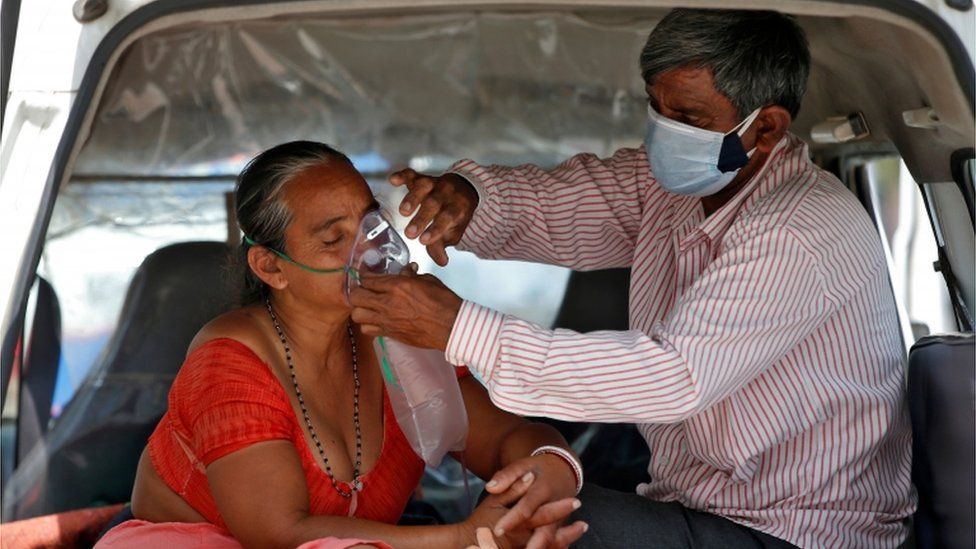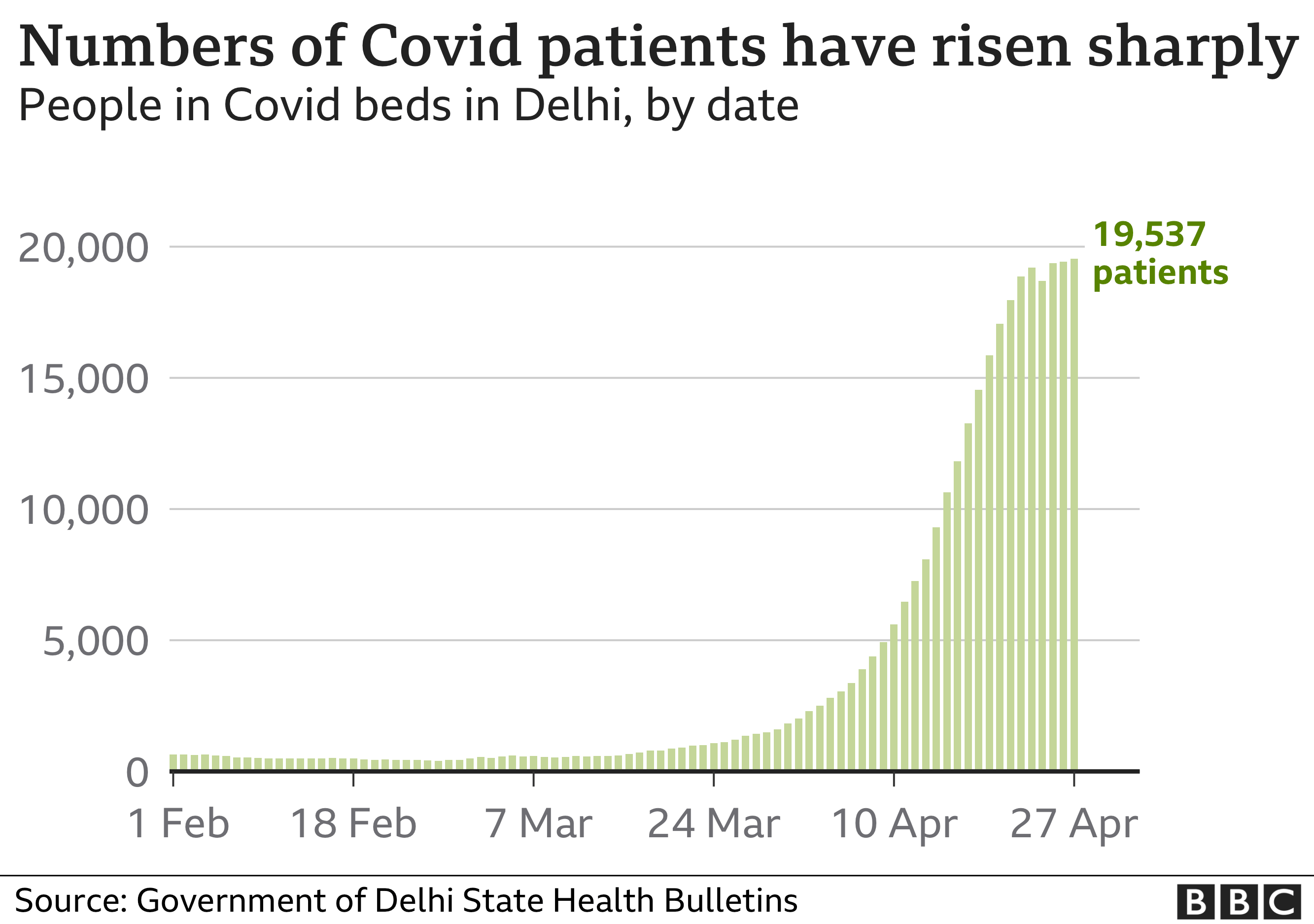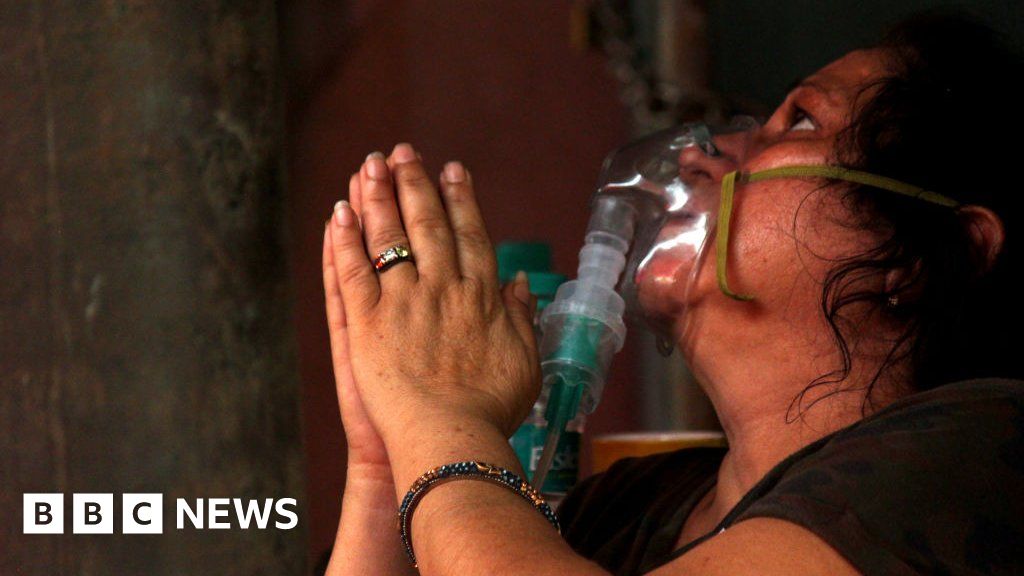
India has reached the devastating figure of 200,000 coronavirus deaths, with the pressure on many hospitals showing no sign of abating amid a sweeping second wave.
The real number of fatalities is thought to be far greater, with many not being officially recorded.
Oxygen supplies remain critically low across the country, with the black market the only option for many people.
Crematoriums are operating non-stop, with makeshift pyres in car parks.
There have been at least 300,000 new infections every day in the past week, with more than 360,000 new cases in the past 24 hours on Wednesday. Overall, more than 17.9 million cases have been registered.
Foreign aid has started to arrive from the UK and Singapore. Russia, New Zealand and France have pledged to send emergency medical equipment, and even regional rivals Pakistan and China have put aside their differences and promised to help.
However, experts say the aid will only have a limited effect in a nation that has a population of 1.3 billion.
A government website where Indians can register for a vaccination programme crashed soon after it launched on Wednesday, as tens of thousands of people tried to access it.
And in the state of Assam, a 6.4 magnitude earthquake damaged hospitals which were already under intense strain. People ran from their homes and other buildings in panic.
Variant dangers
With most hospitals overwhelmed, families are having to find ways to treat loved ones at home. Many have turned to the black market, where prices of drugs such as remdesivir and tocilizumab, and oxygen cylinders, have soared.
But even in this market, supply is no guarantee, reports the BBC’s Vikas Pandey in Delhi.


“I know a family that cobbled together money to buy the first three doses of remdesivir from the black market, but couldn’t afford to get the remaining three as prices shot up further,” our correspondent says. “The patient continues to be critical.”
The World Health Organization (WHO) reported in its weekly epidemiological update that there were nearly 5.7 million new cases reported globally last week – and India accounts for 38% of them.
It also said that the B.1.617 variant of the virus detected in India has a higher growth rate than other variants in the country, suggesting increased transmissibility.
India is heading towards state elections, and there is increasing anger towards both state authorities and the central government for the handling of the pandemic.
Prime Minister Narendra Modi has been accused of ignoring scientific warnings to participate in election rallies and allowing a massive Hindu festival to go ahead in northern India.
State and union territory governments, from Delhi to Karnataka, have been criticised for allowing Covid protocols to lapse and failing to prepare for what epidemiologists say was an inevitable surge in infections.

A tragic sense of inevitability
By Rajini Vaidyanathan, BBC South Asia correspondent
It’s a horror story on repeat. Every day this week I’ve woken up to messages from friends and family in India, begging for help.
Social media posts document the desperation. And it’s not just in Delhi, it’s in every corner of the country.
“Can anyone find a bed in Jaipur for a friend’s father?”
“Who can help find some oxygen for a friend’s grandmother in Uttar Pradesh?”
“There are no beds in Pune, what should we do?”
And sometimes the messages are even bleaker. “My neighbour died yesterday,” a friend told me. “We couldn’t get him a bed.”
My friend, who passed away yesterday morning at 11:30 am still can’t be cremated due to the queue. Still lying in the morgue. Positivity my foot.
— Aparna (@chhuti_is) April 28, 2021

Watching from afar, images of a broken India are hard to process.
Taxis have been turned into makeshift ambulances. Car parks have become crematoriums. Freedom has turned into fear.
“I worry I might get the virus while I walk my dog,” another friend tells me, as she struggles through Delhi’s ongoing lockdown.
Aid is starting to reach India from overseas. But not enough, as cases continue to swamp India. As the world looks on at the endless images of burning pyres, there’s a tragic sense of inevitability.

